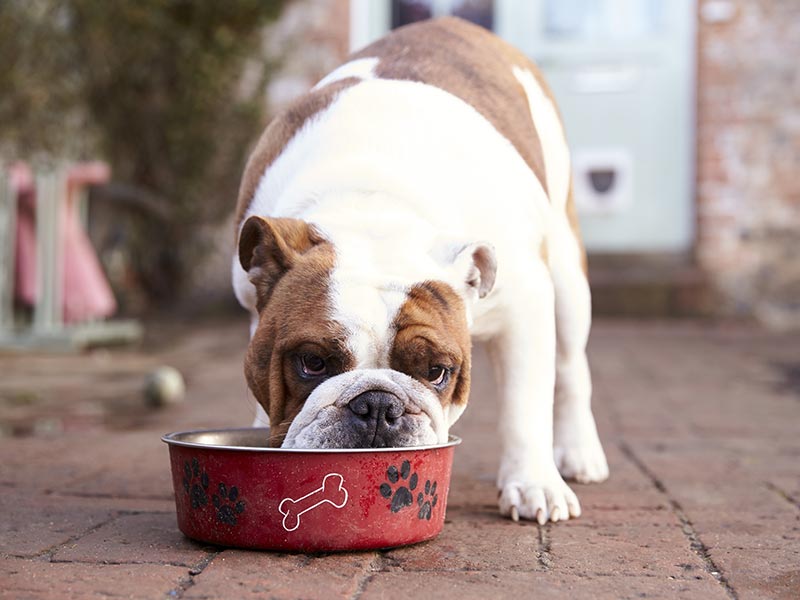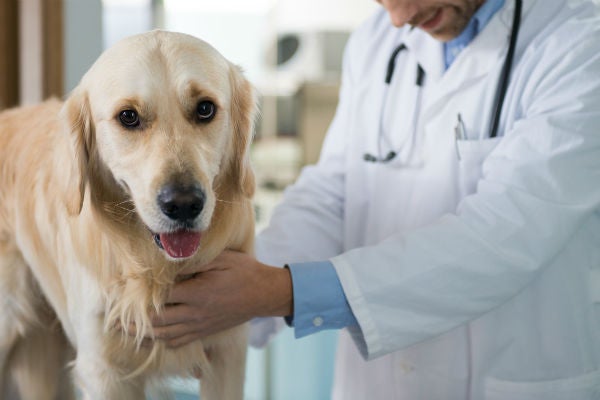
The U.S. Food and Drug Administration (FDA) is warning pet owners not to feed their pets Performance Dog frozen raw pet food. During an inspection, two samples of the food tested positive for Salmonella and Listeria monocytogenes (L. mono), which can sicken both humans and animals. The FDA issued this warning because they believe Performance Dog raw pet food is a serious threat to both human and animal health.
Here is everything you need to know about the risk of Salmonella and Listeria in Performance Dog frozen raw pet food.
What Dog Owners Need to Know About Performance Dog Frozen Raw Pet Food
If you have any Performance Dog product that you purchased after July 22, 2019, throw it away immediately in a secure container (so that wildlife can’t get into it). Then, clean and disinfect all bowls, utensils, food prep surfaces, pet bedding, toys, floors, or any other surfaces that the food may have made contact with.
What are the Symptoms of Salmonella Infection?
Salmonella is a bacteria that sickens both humans and animals. The CDC says that people infected with Salmonella can develop abdominal cramps, diarrhea, nausea, vomiting, chills, bloody stool, headache, and fever. Onset after exposure is anywhere from eight to 72 hours, and recovery can take a few days.
While the severity varies according to the strain of Salmonella and the general health of the patient, the elderly, the infantile, and the immune-suppressed are highly susceptible. In them, a Salmonella infection (called salmonellosis) can lead to hospitalization and even death.
Contrary to myth, dogs and other animals also develop salmonellosis. The signs of Salmonella in dogs include:
- vomiting
- bloody stool or diarrhea
- lethargy
- loss of appetite
- fever
What to Do if Your Dog Has Salmonellosis
Dogs who develop salmonellosis symptoms should see a veterinarian. In some cases, infected canines may not actually show signs of being sick, but they can still shed the bacteria in their feces and their saliva. Dog owners should always clean up after their pets and scrub their hands after walking them regardless of what kinds of treats and foods they are feeding them.
What to Do If You Have Salmonellosis
If you think you have contracted salmonellosis, see your health care provider for confirmation and treatment. If you believe your dog is displaying symptoms, take them to the vet.
What is Listeriosis?
Listeriosis is a serious infection usually caused by eating food contaminated with Listeria monocytogenes. An estimated 1,600 people get listeriosis each year, and about 260 die, according to the Center for Disease Control and Prevention. Those most at risk include pregnant women, newborns, adults aged 65 or older, and people with weakened immune systems. Although L. monocytogenes can infect many animal species, dogs and cats rarely get listeriosis and don’t usually show signs of the disease.
Report Your Concerns
If you have a concern about salmonellosis or exposure to Salmonella through a product, you can report it to the FDA through the Safety Reporting Portal. This helps the agency keep track of issues and trace cases back to their origins. The FDA encourages you to report complaints through the Safety Reporting Portal or by calling your state’s FDA Consumer Complaint Coordinators. Your veterinarian may also use the Vet-LIRN Network to test pets from a household with a person infected with Salmonella.


